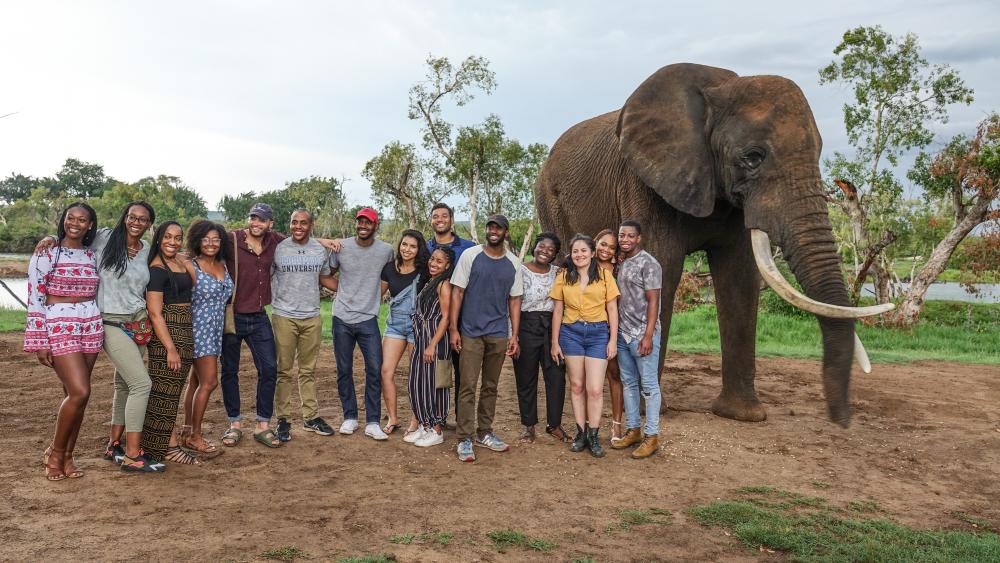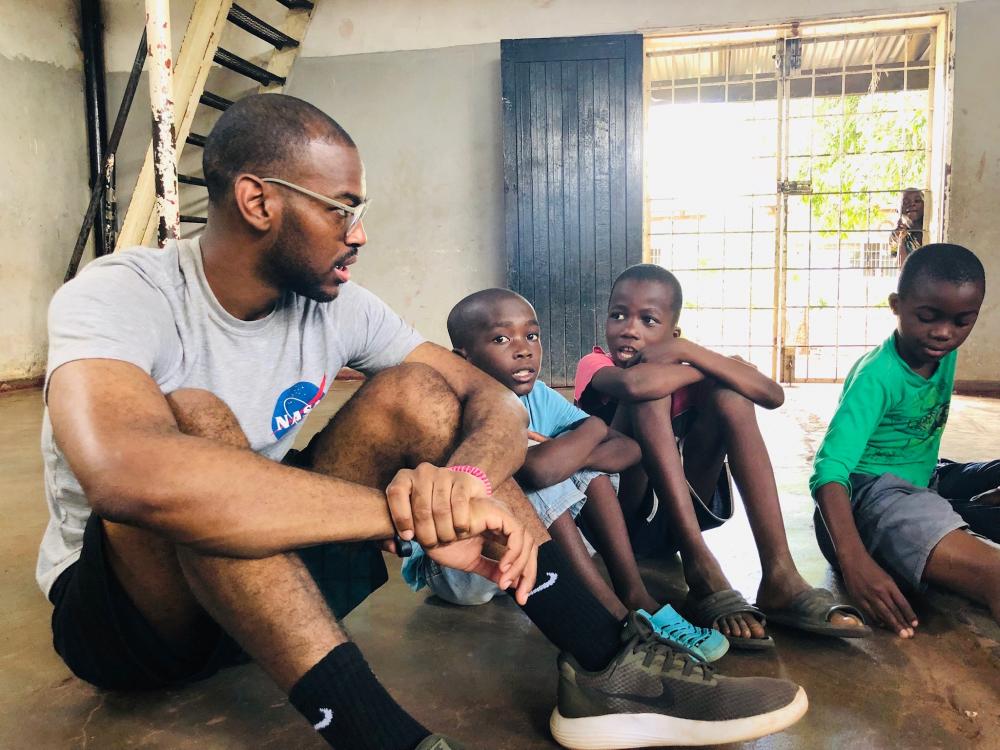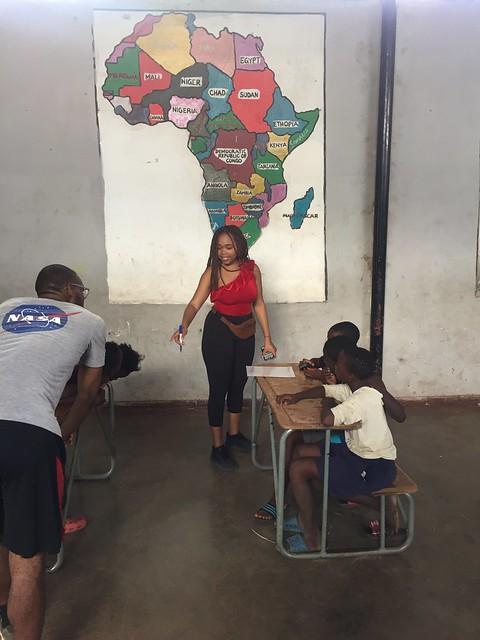BLSA Members Make First Service Trip to Zambia
A Q&A With Caleb King ’20 on what students accomplished and the impact they felt.
In January 2019, 16 2L and 3L members of Columbia Law School’s Black Law Students Association (BLSA) took a service trip to Zambia. Caleb King ’20, BLSA’s community service chair, described the purpose of the trip and plans for future involvement.
Q: How did BLSA’s inaugural international service trip come about?
Caleb King ’20: The trip was entirely driven by students. Mike Adams ’20 and I led the planning and organizing of the trip, and Nyaguthii Chege from Social Justice Initiatives offered advice throughout the entire process and was part of the selection process. She was incredibly helpful. We worked with Student Services as well.
We felt it was important for BLSA members to recognize the daily challenges that communities of color face all over the world, whether that means effects of colonization, economic inequality, or racial injustice. Our previous executive boards put a tremendous amount of work into thinking about ways to positively impact communities of color, not just within the United States but internationally as well. The current executive board is also dedicated to addressing these issues. This trip is a testament to BLSA’s dedication to community and civic engagement.
Why did you choose Livingstone, Zambia? What are the most pressing issues affecting the area, and what work did BLSA members do to help alleviate them?
We chose Livingstone because it is combatting significant public health problems as well as social and economic development issues that are generally overlooked.
BLSA partnered with African Impact, an award-winning grassroots organization based in South Africa that specializes in service trips. BLSA members helped the African Impact team build an add-on structure to a local school. In the pictures below, you can see us laying the foundation for what would be two classrooms—one on the left and one on the right—and an office in the middle for teachers. The work involved shoveling dirt, concrete, and gravel, and using wheelbarrows to move debris. It was physically demanding, but the gratification in seeing daily progress as a result of our efforts was worth it.
We also assisted with after-school reading and math clubs, helping to teach 5th and 6th graders math, the alphabet, phonics, spelling, pronunciation, and reading and comprehension skills.
What are some surprising takeaways you learned on the trip?
Some BLSA members had visited Africa before but not Zambia specifically. The stark contrast between life in the United States and life in Zambia was was incredibly humbling. It’s easy to take for granted privileges such as water, electricity, and various other commercial resources. But being there raised an important question: As a society, how we are able to feel comfortable living in a world where such a disparity exists? This is something that the group struggled with and is still thinking critically about.
How does this service work tie into BLSA's larger mission?
This service work is directly tied to BLSA’s larger mission to actively uplift and support communities of color. BLSA seeks to create a community that in many ways acts like a family. We support one another throughout the law school journey but are also cognizant of the importance of giving back and remembering where we all came from. Over the years, BLSA has worked hard to positively impact marginalized communities, and this international service trip further exemplifies this.
We are in the process of having an important dialogue about how to build off this trip. We hope to have a biannual trip following in the footsteps of Harvard and NYU Law. We will definitely return to Africa and continue to focus on partnering with grassroots organizations and local needs.
Why are service trips like this important to your development as a future lawyer? What advice would you give to Columbia Law students hoping to get involved in something similar?
Service trips like this allow me to be well-rounded and in touch with the issues that many people face on a daily basis. Regardless of profession, it’s important to be aware of the different ways that you can make an impact and positively contribute to society.
I would tell Columbia Law School students hoping to get involved that there are a variety of ways to make an impact. Everyone has the capacity to create change in some manner, and students should seek the opportunity to do so.
###
Published March 6, 2019


